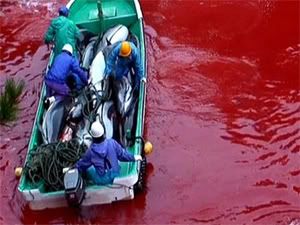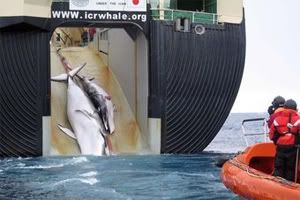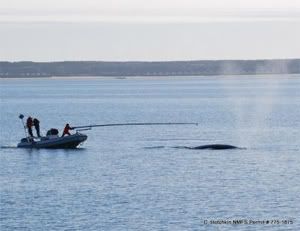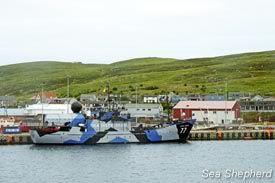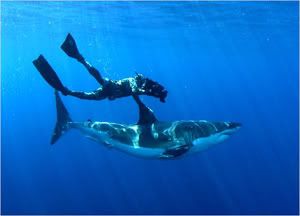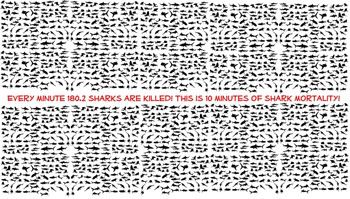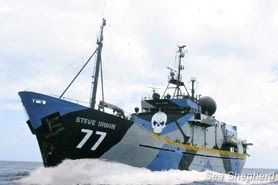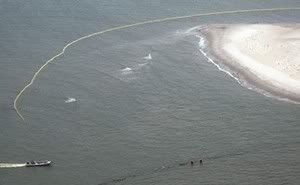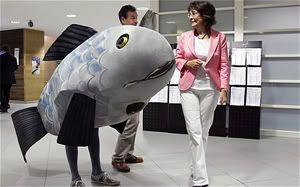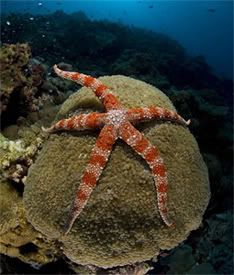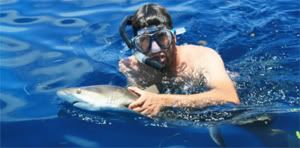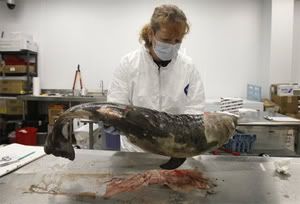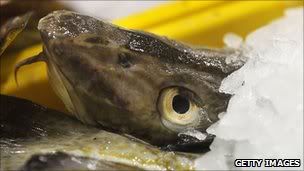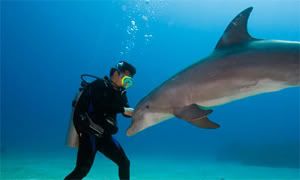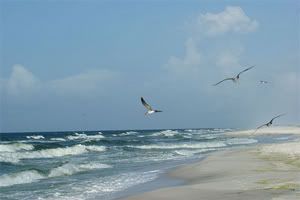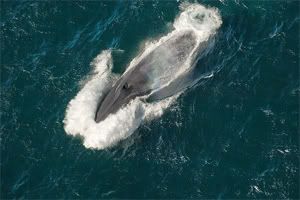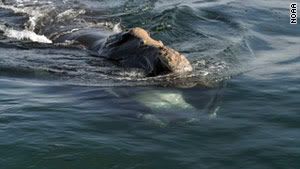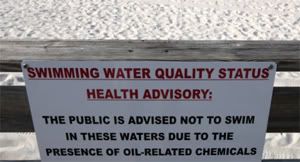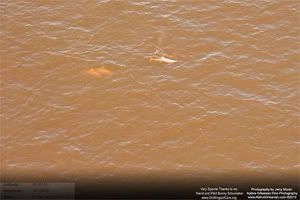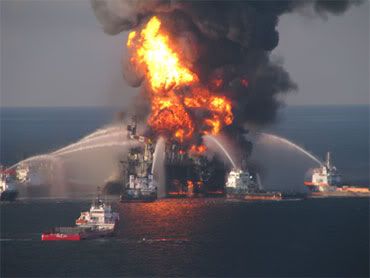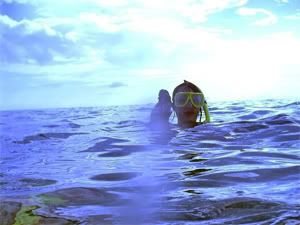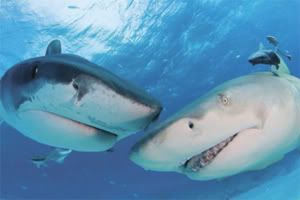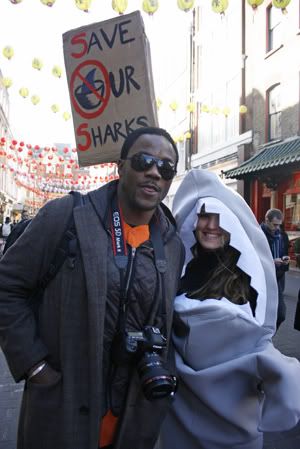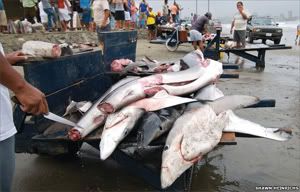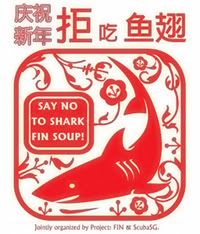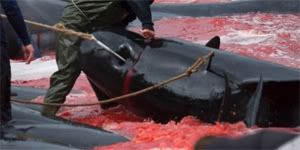
photo credit Stop the Grind
Pilot whales are the most common target, as their ancient migration paths cross the island waters. Other species that are killed include harbor porpoises, Atlantic white-sided dolphins and bottlenose dolphins.
The Faroese argue that their hunt is not commercial and that the animals are used for sustenance. Environmental and animal rights groups argue that in the modern Faroe Islands there is more than enough food to go around and the hunt is therefore unnecessary. Furthermore, the meat of the cetaceans has been proven to carry high levels of toxins such as PCBs and mercury and is dangerous for human consumption. Another Faroese argument is that the species are not endangered and the hunt does not pose a significant threat to the worldwide population. The official standing of both long-finned and short-finned pilot whales on the International Union for Conservation of Nature (IUCN)'s Red List of Threatened Species is "data deficient," and it means just that - we don't know. The hunts may be causing more damaging than we are realising, especially on localised populations.
The biggest argument is that the grind is a historic part of Faroese culture. To that I personally have just one response: Killing is not culture. Is that really an argument anyone would want to win?
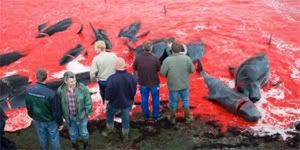
photo credit Stop the Grind
The most recent slaughter on the Faroe beaches occurred on November 18th where 46 animals were killed, bringing the total number this season to 642. It is rare to hear a Faroese voice against the grind, but recently some have spoken out against it. On the Sea Shepherd's most recent campaign to the Faroe Islands, they even had two Faroese individuals aboard.
So what can you and I do about this? The main course of action is to sign petitions and write to representatives. This issue is still not very well known, so spreading the word is important. Most people have been horrified when they find out about the grind - even some of my friends who hate animals (Yes, they are crazy. Love you guys ♥). Since the main concern of the Faroese is protecting a cultural tradition, this is an uphill battle. The circumstances are very similar to those in the fight against the dolphin killing in Taiji seen in the film "The Cove." Click on over to Stop the Grind's Take Action page for some more suggestions.
There is another hunt going on as I type this. An additional 1,000 whales are being targeted.
Swim fast, swim far, swim deep.

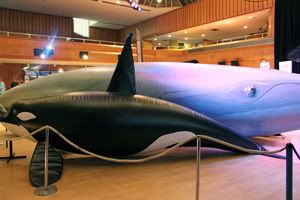


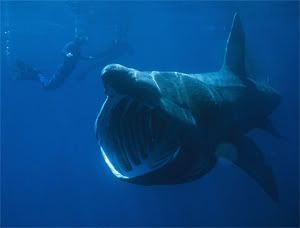
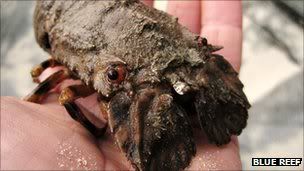
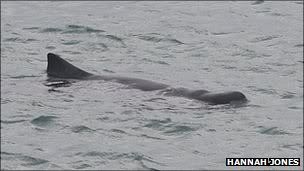
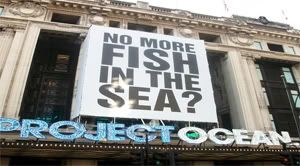
 Here's some lovely numbers:
Here's some lovely numbers:

